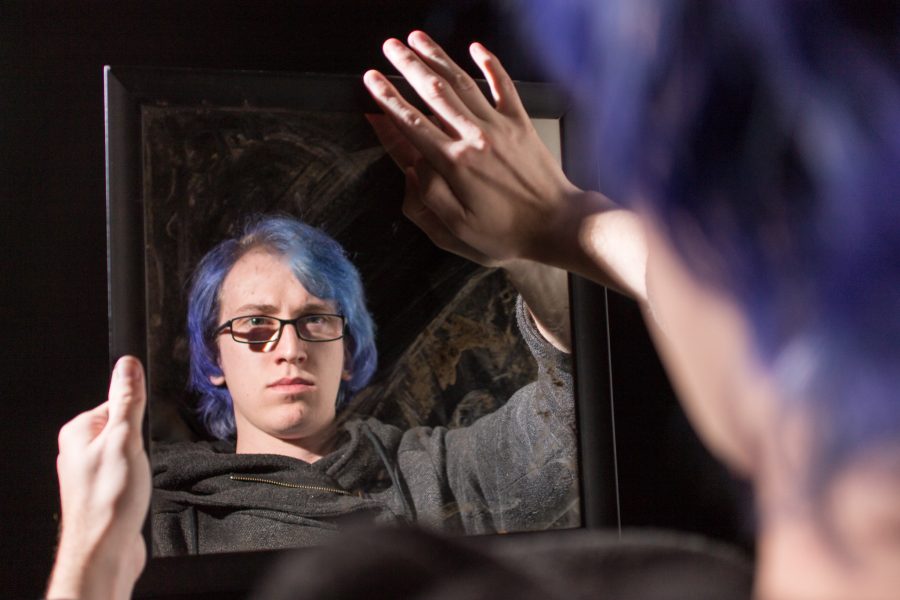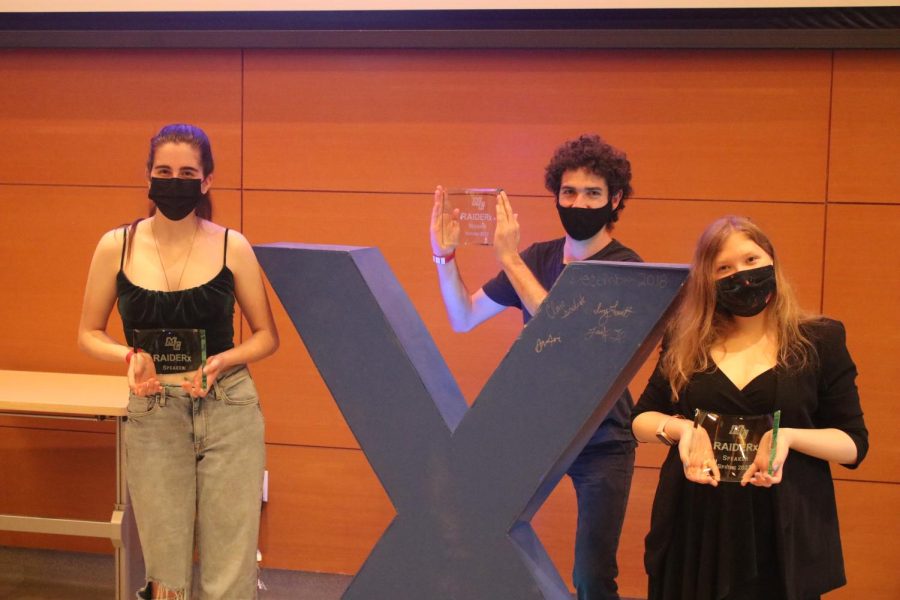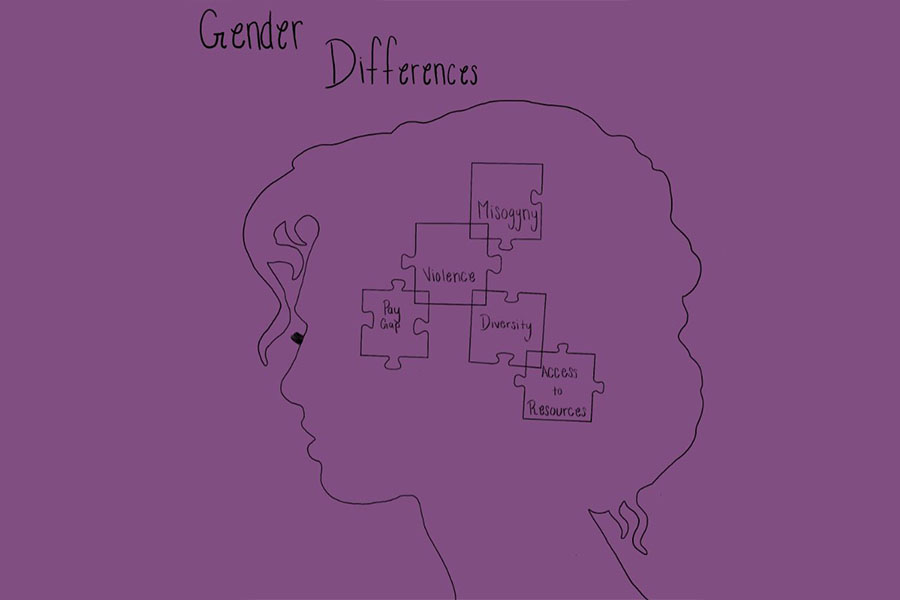Several weeks ago I was sitting in the office of the Student Health Center filling out the form to receive mental health counseling, scanning questions about my problems and whether or not I was in immediate danger.
For weeks friends and other members of the Student Voice had been raising concerns about how I’d be acting, worried I might need help. I was reluctant to listen to them. Despite years of knowing I suffered from mental illness, specifically depression and Obsessive-Compulsive disorder (OCD), I refused to ask for help in dealing with them because I felt that if I did ask for help I’d be admitting to myself once and for all something that I could not accept.
I’d be admitting I was broken.
I had committed to the idea that my illnesses were my fault, that I failed in being strong enough to get over them on my own. I felt that I was somehow invalid, separate from everyone else because I felt things differently than others. I’d been caught up in the same thing so many others who suffer from mental illness have before me.
I’d internalized the stigma.
Sharon Manakas, Health Coordinator at Moorpark College’s Health Center, says that stigmas come from a society’s general lack of understanding, fear, and uncertainty of how to help.
But why does not understanding matter? I certainly don’t understand breast cancer, but I’ve never blamed anyone for having it. Depression and OCD are illnesses, like catching the flu or the effects of having allergies. Why should I feel any worse about suffering from mental illness than I do about catching a cold?
Author and professor at University of Southern California Gould School of Law, Elyn Saks, who also suffers from schizophrenia, explains this phenomenon in a Huffington Post article.
“Perhaps they stigmatize the mentally ill because society always marginalizes people who are different,” wrote Saks. “Or people may blame the person, not realizing that mental illness is a no-fault brain disease that you can’t just will away.”
Dictionary.com defines stigma as “a mark of disgrace or infamy; a stain or reproach, as on one’s reputation.” You can imagine how feeling that definition applied to you might discourage those of us who do suffer from mental illness from admitting it.
Joey Polinger, a 25-year-old Psychology major at Moorpark, describes what that suffering can feel like.
“It’s isolating … You have so many people who are telling you that nothing’s wrong and you shouldn’t feel this way,” Polinger said. “So you turn that in on yourself and you feel worse because you’re like ‘What’s wrong with me? Why do I feel this way? I guess I’m broken.'”
Polinger is describing internalization, something I did by blaming myself for the challenges of my illness, ultimately leading to that blame becoming paramount in my view of myself.
Up until very recently, I thought depression was my personality. I thought much of my inability to reach my goals was due to me merely being insufficient as a person. In fact, it was only this past June when for the first time in my almost 10 years of dealing with depression I realized that what I felt I was normal after I played a short text adventure called “Depression Quest.”
In the game, assuming the role of a young adult suffering from depression, you must make choices on how to conduct your social life, how you stay motivated, whether or not you get help, etc. Meanwhile the game slowly takes the more positive, pro-active options away from you, simulating the feeling of being unable to help yourself in the midst of crippling depression.
After countless pages of the game describing a life of loneliness and self-hatred so word for word my own, I finally realized that I wasn’t the only one.
I’d been telling myself that I was a failure. Up until this point, blaming my depression felt like an excuse, a cheating way to rationalize my relatively slow progress to make something of myself, rather than a legitimate barrier to success that it is.
I’d internalized the idea that depression wasn’t something you suffered from, it was something you were meant to get over, a concept I’d learned from the stigma around it.
Rebecca Norwood, a 23-year-old Psychology major and Secretary of the Moorpark College National Alliance on Mental Illness club has suffered from OCD and attention deficit hyperactivity disorder (ADHD) and can trace an intricate history of what it was like growing up with mental illnesses, and how stigma augmented the difficulty of dealing with them.
“I used to cry to my mom all the time and be like ‘Why am I different?'” said Norwood. “‘Why do people see me as different? I don’t understand. I don’t want to be this way…Why can’t I be who I want to be externally, too?'”
Most people I spoke to in writing this article had a story to tell specifically about being a child with mental illness, retracing memories of confusing loneliness. It seems, then, that even at a young age, people with mental illness begin to see ourselves as separate from those around us. When our moods, behaviors, and reactions don’t match up to others, it can lead to an internalization that we are the problem, that we are different, before we even have any concept of mental illness.
Eventually, after accepting therapy and what Norwood describes as a personal choice to receive medication, things began to change. She began to see that the stigma surrounding her suffering did not define it.
“It really turned me differently,” Norwood said. “Going through ‘What am I, what’s going on?’ to ‘I hate myself … this is what’s wrong with me, who I am, and what I’m doing.’ and then to ‘You know what this is who I am and that’s fine.'”
Norwood now actively engages in helping others understand what living with a mental illness is like, aiming to halt the spread of misunderstanding that contributes to the characterization we’re all familiar with. But even that isn’t without challenges.
“It’s hard to approach people when you talk about a disease, it is hard because [I] don’t want to sound like I’m accusing you of being X,Y, Z,” Norwood said. “I just want to be able to educate…not in a demeaning way.”
For me, talking about my depression isn’t hard. Sure, it feels awkward to throw out “I have depression” to someone in a conversation and have it struggle to serve as some sort of reference point or explanation of my behavior. The meaning of the word or what it entails is all too often misinterpreted, but it isn’t hard to say it out loud.
What is hard, almost impossibly so, is to know it’s true.
To know that what I feel on a daily basis, moment to moment, is real. These feelings aren’t a result of me not being enough, of me not believing in myself, of not being ready for life or not being enough. They’re a result of a sickness, just like a broken arm or a sore throat. And there is no reason we can’t all come together and talk about it as such.
“Some days you wake up and you’re just exhausted for no real reason … It’s a constant pressure on you that’s weighing you down and it’s not really describable,” Norwood said. “It’s hard to put into words…Some people get it more than others and some people need it really broken down…There’s a lot to it.”
But I believe, if we were just more open to talking about mental illness, as if it were nothing more than a regular injury or sickness, that difficulty would disappear. Because once you realize it isn’t a person’s fault or mistake that resulted in their having an illness, it ceases to be difficult to understand.
The simple fact at the end of the day is that these are illnesses. It is my hope that for someone, somewhere out there, this article does what “Depression Quest” did for me: demonstrate that mental illness is NOT who you are. It is something you suffer from.
I never finished that form to receive mental counseling, I put my pen away before finishing the first page out of shame and humiliation. But after a long semester of work, personal and family issues, and especially after meeting and speaking with other students who suffer from mental illness, I understand something.
I am not broken. And neither are you.
Or, as Norwood puts it.
“There’s nothing wrong with you, it’s okay to be this way,” said Norwood. “Who defined normal? Society makes you feel like you need to be normal. Fuck normal.”



















